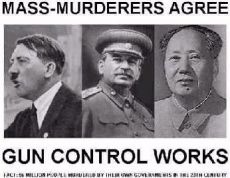OreoThunder Takes It Deep
Saturday, November 06, 2010
Earlier this week, I posted about the Republican takeover of the House, and the role of Constitutionalism and the Tea Party in the win. I also made some important points about where to go when the Republican Party ultimately drops the ball.
OreoThunder left a comment that took nine paragraphs to say what it took the likes of Hannity and Limbaugh multiple volumes to say. Were Harry Kalas alive today, he would have had to call it just like he would have a Michael Jack Schmidt home run ... OUTAA HEERREE!!!!! Here it is in its entirety for all to savor:
We conservatives have rallied against what we see as President Barack Obama's "wealth redistribution" policies. For us, Obama's infamous meeting with Joe the Plumber, during which the future president said he wanted to "spread the wealth around," was a defining moment.Wow.
Nearly two years into Obama's presidency, the debate about government's role in redistributing wealth continues to be a central one in American politics. Too often, however, conservatives allow this debate to center around the issue of "fairness." Liberals believe it would be "fair" if the "wealthy" were taxed more in order to support government programs intended to benefit the less fortunate. Conservatives counter that no "fairness" can exist in a society where income is forcibly taken from those who have earned it, regardless of the intent.
Such a debate will never be settled. Words such as "fair" and "wealthy" defy definition, and any argument that presupposes a shared meaning is doomed from the start. The real challenge for liberals, then, is not in convincing conservatives of the true definition of "fair" or how much income makes one "wealthy." The real challenge facing liberals is a much more basic one. In order to present a truly sound argument for redistributing wealth, liberals must focus not on distribution at all. Instead, they must solve for wealth creation.
Any government with a sufficiently armed police force has the ability to redistribute wealth. There's nothing complicated about forcing an individual to give up some or even all of his or her wealth at the threat of incarceration. That's easy. The dilemma, however, lies in doing so while at the same time maintaining an environment in which those who create wealth are motivated to continue doing so.
If wealth simply appeared out of nowhere, the liberal view of "fair" distribution would certainly have merit, especially from a purely social perspective. Who could argue that a free and abundant resource should be equally shared by all? Wealth, however, does not simply appear. It is the result of ingenuity, effort and risk-taking. If we fail to make it worthwhile -- or make it unnecessarily burdensome -- for individuals and organizations to apply ingenuity, put forth effort and take risks, there no longer exists an incentive to create wealth.
Because a policy of redistribution destroys the motivation to create wealth, such a policy cannot be sustained. There is a terminal point to a policy of wealth redistribution -- the inevitable point where wealth creation simply ceases, or at least decreases to a level that cannot support the standard of living enjoyed at the policy's inception.
Liberals must solve for wealth creation. Any policy that seeks to redistribute wealth but at the same time decreases the incentive for its creation will ultimately collapse on itself. For liberal policies to work, there must exist at the same time an increasing tax burden on wealth and an increasing incentive to create wealth. This paradox is not overcome by some vague concept of "fairness." Basic economics cannot be permanently ignored.
This liberal dilemma is an example of something we see more and more in today's political environment: a clash between social ideology and economic reality. We can even go back to the 2008 economic downturn to see this dynamic at work. A social ideology (everyone should own a home) led to government-mandated lending practices that ultimately ran headlong into economic reality (not everyone can repay a home loan). The result was economic disaster.
It is an interesting irony that the very capitalism decried by liberals is responsible for the wealth they want to redistribute under their banner of "fairness." Until, however, they can adequately solve for creation -- rather than simply call for redistribution -- their arguments amount to nothing more than hollow, irrational ranting. Perhaps this is what Winston Churchill meant when he said, "If you're 20 and not liberal you have no heart, but if you're 40 and not conservative, you have no brain."
RWR








































